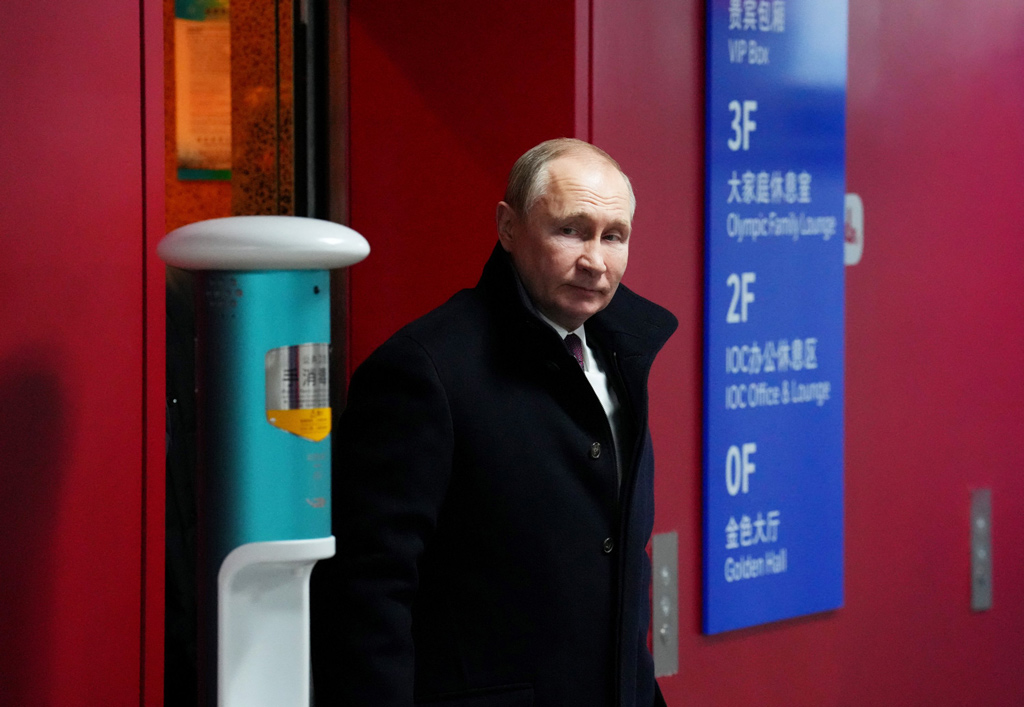Speaking to a group of journalists, including myself, on his return trip from Ukraine, President Recep Tayyip Erdoğan criticized the West for "hindering" instead of contributing to a peaceful resolution of the Ukraine crisis. Reiterating
Turkey’s willingness to mediate talks – which, he said, Ukraine’s President Volodymyr
Zelenskyy welcomed – Erdoğan highlighted the importance of Russian President Vladimir
Putin’s upcoming visit. The Turkish leader also noted that United States President Joe Biden's administration had not adopted a "positive approach" and insisted that Europe was left without a leader capable of resolving the Ukraine crisis in the aftermath of German Chancellor Angela Merkel’s retirement.
It was particularly important that Erdoğan accused the West of "hindering" ongoing efforts ahead of his Russian counterpart’s visit to Turkey. He appeared to support Ukraine’s territorial integrity, whilst appreciating Moscow’s security concerns. As the president of Turkey, a NATO ally that cooperates with Russia in many areas, Erdoğan aims to lay the groundwork for a peaceful solution.
Eyes on Putin
Obviously, the ball is in Putin’s court. The Russian president could attempt to end the crisis by speaking with the Ukrainians directly if he concludes that there won’t be a grand bargain with the West. Turkey’s mediation offer would work under those circumstances.
On the day of
the opening ceremony of the Winter Olympics in Beijing, Putin issued a joint statement with Chinese President Xi Jinping to announce that their bilateral relationship was "superior to any political-military alliance of the Cold War years." The two leaders added that their friendship knew "no bounds" and said that they were planning to work together in many areas, including space, climate change, artificial intelligence (AI) and internet controls.
While Moscow endorsed the Chinese position on the trilateral security pact AUKUS as well as Taiwan, Beijing supported the Russian demand for "security guarantees in Europe." This rapprochement between Russia and China, which is experiencing tensions with the U.S., signals that major changes could take place amid the current "great power competition."
Russia, China toward a bloc
At this time, China and Russia are yet to form a geopolitical bloc against the U.S. and the European Union. Clearly, there are certain areas of competition between the two nations, ranging from demographics to spheres of influence. Again, it appears that the Biden administration pushed Beijing and Moscow closer together by confronting both at the same time. Unable to receive guarantees from the U.S. and NATO, Russia just played its most strategic card and moved closer to China.
In other words, the Kremlin just responded to the West’s threats of severe sanctions, military deployment and the delivery of weapons by taking a step that Washington finds most unnerving: It strengthened its cooperation with China – the U.S.' only rival in the battle for global hegemony.
As such, Putin made the latest move amid the global debate that the Ukraine crisis triggered, which, admittedly, is unlikely to get the U.S. and NATO to take a step back. Surrendering Europe to Russian influence would amount to a total reversal of the Biden administration's attempt to "reclaim global leadership." However, to push China and Russia closer together, too, could undermine American interests in the medium and long run. Of course, there is no way of knowing what exactly occurred in
negotiations between Putin and Xi over the Ukraine crisis. Still, there is no reason to think that they shook hands on a deal, whereby Russia and China would get Ukraine and Taiwan, respectively.
One thing is clear: Putin just carved out strategic room for himself amid tensions with the U.S. and NATO. Notwithstanding, China is not in a position to lend concrete support to Russia’s security concerns in Europe. At the same time, the Russian president needs fresh initiatives in the Ukraine crisis, including Turkey’s mediation offer. Warning Kyiv not to get carried away by the West’s statements, Ankara could facilitate Moscow’s efforts to find new ways to end the crisis.
The Russian president’s upcoming visit to Turkey can be the first step toward a peaceful resolution in Ukraine. It must be.
[Daily Sabah, February 8, 2022]








